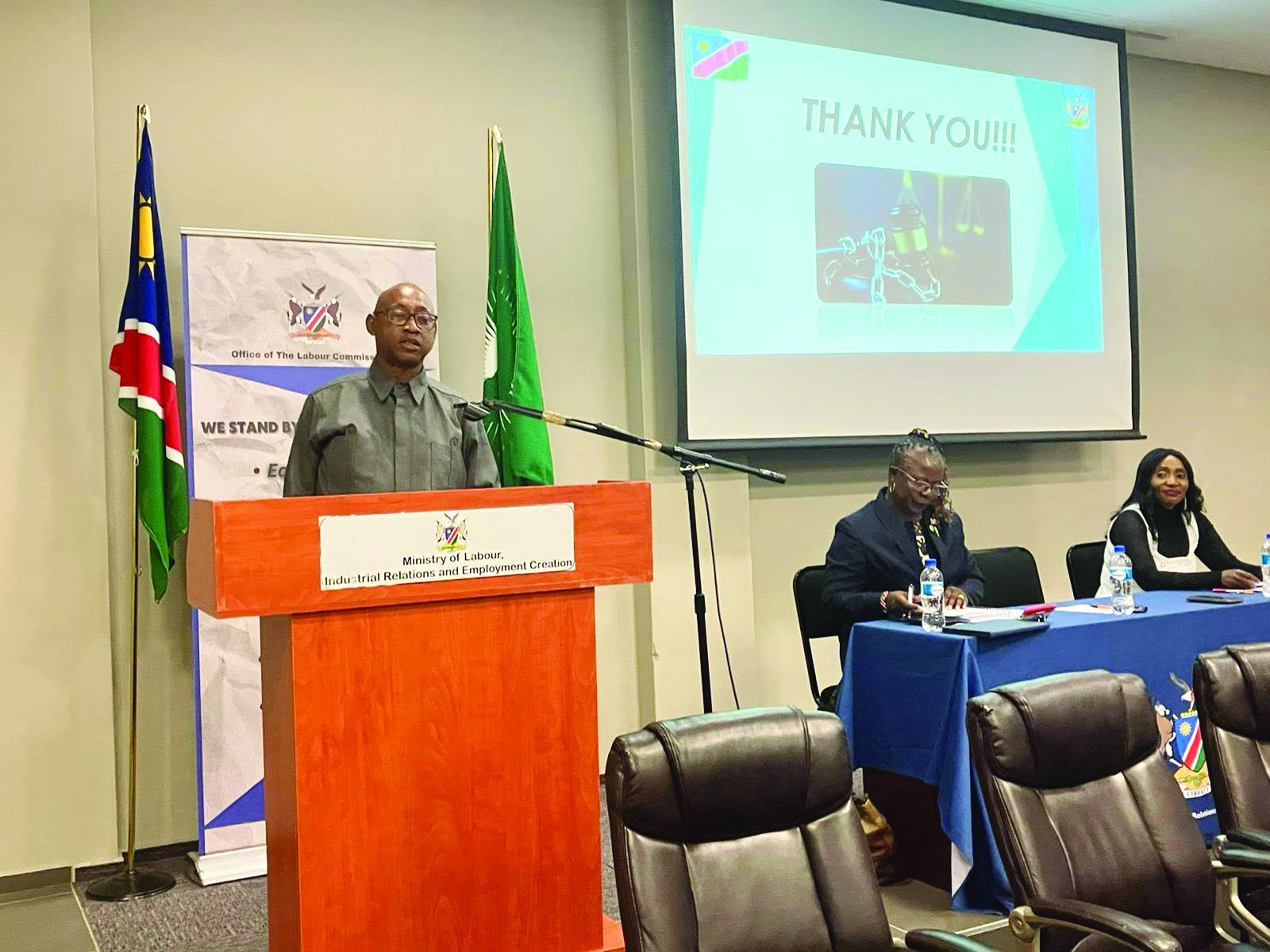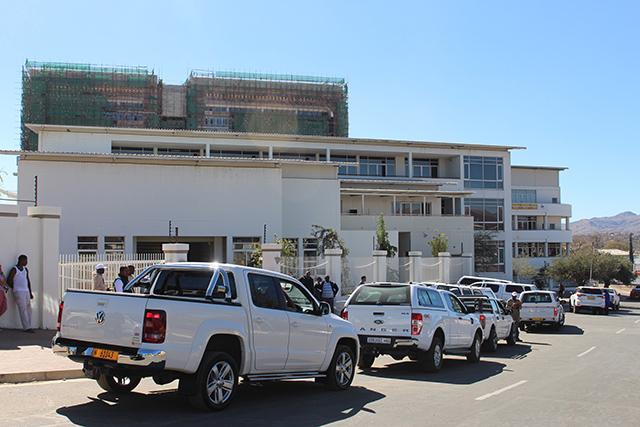The office of the Labour Commissioner (OLC) is set to become autonomous from the Ministry of Labour, Industrial Relations and Employment Creation, of which it is currently a department.
In preparation for the move to autonomy, the OLC hosted a stakeholder consultation at its offices in Windhoek on Monday.
“By granting the office autonomy and independence, we aim to bolster its capacity to fulfil its mandate free from external influences, speaking to the notion that justice must not only be done, but also be seen to be done,” deputy minister Hafeni Ndemula said in his keynote address.
Labour executive director Lydia Indombo also attended the event, as well as labour commissioner Kyllikki Sihlahla, and other experts.
The event followed consultations held in July and August.
Marvin Awarab, senior lecturer at the University of Namibia and member of the African Labour Law Society, explained during a panel discussion that labour arbitrators are technically part of the executive branch since they belong to the labour ministry
However, they perform quasi-judicial functions, which is why they must be independent or autonomous from the ministry to ensure the separation of powers, he said.
“Because of that particular function they are performing, it is imperative that we move towards a route where the office [of the labour commissioner] can get some form of independence or autonomy,” Awarab said
The decision to make the OLC autonomous was made in accordance with a Southern African Development Community framework on dispute resolution systems agreed on by the member states in October 2023, as well as recommendations from the International Labour Organisation.
South Africa’s Commission for Conciliation, Mediation and Arbitration will serve as the benchmark for the autonomous OLC, which may adopt a new name.
Labour commissioner Sihlahla highlighted that the services of the OLC will remain free, and said its future board of directors will be made up in a tripartite manner of representatives from the government, employers and employee associations.
She said the autonomous OLC will no longer form part of the public service to avoid conflicts of interest in arbitrating between the government and trade unions.
This had been one of the concerns union representatives raised at the stakeholder consultation.
The labour commissioner conceded that her office is currently not operating effectively and efficiently. She attributed this fact to a staff shortage and the lack of a library and a dedicated research department, which could support arbitrators in their work.
Sihlahla also spoke about the failure to retain talent, as well as the small budget of the labour ministry, which she called “vague and embarrassing.
“We are unable to attract qualified arbitrators. Maybe they are just not available in the country,” she said.
The salaries offered by the OLC are simply not attractive enough to highly skilled applicants, according to the commissioner.
When asked about the schedule for becoming an autonomous institution, Sihlahla did not give specific dates.
“The time frame for us is now. This is long overdue,” she said.
Stay informed with The Namibian – your source for credible journalism. Get in-depth reporting and opinions for
only N$85 a month. Invest in journalism, invest in democracy –
Subscribe Now!






